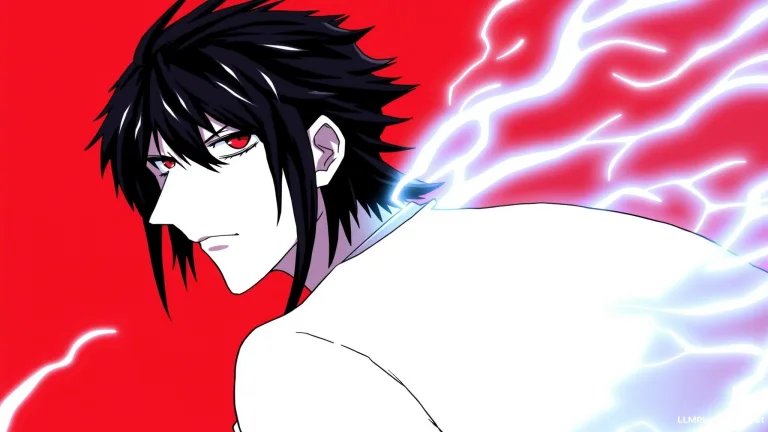
Introduction
When it comes to anime, few characters evoke as much debate and discussion as Light Yagami from the critically acclaimed series 'Death Note.' On one hand, Light is depicted as an exceptionally intelligent young man with a strong sense of justice. Armed with a mysterious notebook that can kill anyone by merely writing their name, he sets out to rid the world of criminals, taking on the role of a self-proclaimed god. Yet, as his ambition grows, so does his moral ambiguity, prompting viewers to question if his actions can truly be justified. This dichotomy makes him not just a villain, but a protagonist who blurs the lines between good and evil. As fans of the genre tune in, they are met with a character who inspires admiration, revulsion, and everything in between. In this blog post, we'll dive into the reasons behind Light's polarizing nature, exploring his motivations, decisions, and the profound themes that make 'Death Note' a masterpiece of psychological drama. Join us as we dissect what makes Light Yagami not just a compelling character but one that leaves a lasting impact on the anime landscape and its viewers.
The Genius Behind the Death Note
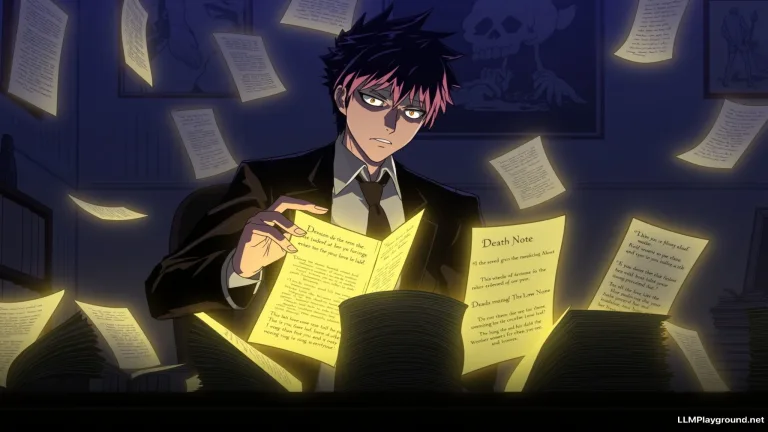
Light Yagami stands out as one of the most brilliant minds in anime, making him a multifaceted character that viewers can't help but be drawn to. His intelligence is akin to that of a chess grandmaster; he anticipates the moves of his opponents and plans several steps ahead. This strategic genius is on full display in "Death Note", where Light uses the power of the Death Note to impose his own sense of justice upon a world he deems corrupt. His ability to manipulate situations and people is captivating, and it raises an essential question: can intelligence justify morally questionable actions? This complexity is what generates a wide range of reactions among fans, and many find themselves conflicted over their feelings for him.
Moreover, Light's descent into villainy challenges viewers to explore the gray areas of morality. While he starts with the noble intent of eliminating evil, his methods become increasingly ruthless. The viewer's sympathy for his goals is inevitably contrasted with horror at his actions, creating a psychological tug-of-war that keeps audiences engaged. This moral ambiguity not only makes Light Yagami a polarizing figure but also invites discussions about right and wrong in dire circumstances. Not every character provokes such passionate debate, and it’s Light's unique blend of brilliance, charm, and menace that solidifies his place as one of anime’s most enigmatic figures.
The Struggle Between Justice and Morality
Light Yagami's journey in the anime 'Death Note' is a compelling exploration of the struggle between justice and morality. He begins as an exceptionally intelligent high school student who discovers a mysterious notebook that allows him to kill anyone whose name he writes in it. This newfound power leads Light down a dark path, as he grapples with his desire to rid the world of criminals and his increasing disregard for human life. As he assumes the role of 'Kira', his actions raise ethical questions about the nature of justice. Is it justifiable to take a life to create a better world? This dilemma makes Light a polarizing figure, drawing viewers into deep debates about right and wrong.
As the series progresses, Light's actions become increasingly questionable, blurring the lines between heroism and villainy. He views himself as a god-like figure, manipulating the very concept of justice to fit his narrative. However, his growing hubris and moral decay highlight the dangers of absolute power. Fans of the series find themselves torn; some endorse Light's initial intentions of eradicating evil, while others are horrified by the lengths he goes to achieve those goals. This internal struggle resonates with audiences, making Light Yagami not just a character, but a phenomenon that challenges our understanding of morality and justice in a complex world.
Light's Charisma: A Double-Edged Sword
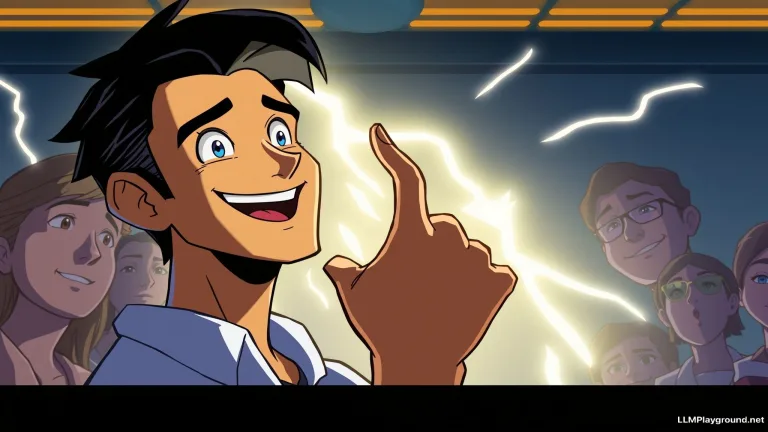
Light Yagami's charisma is undoubtedly one of the traits that make him a compelling yet divisive character in the anime world. His intelligence, confidence, and articulate demeanor draw viewers in, creating a strong emotional connection. Many viewers find themselves rooting for him, enchanted by his brilliant plan to rid the world of criminals. This charm makes him relatable, leading fans to empathize with his quest for justice, even if it veers into morally ambiguous territories. However, this same charisma also serves as a double-edged sword, blinding audiences to his increasingly tyrannical methods.
As Light's ambition grows, his charm becomes a mask for his darker pursuits. He transforms from a well-intentioned student into a god-like figure who believes he has the right to decide life and death. This troubling evolution forces viewers into a moral quandary—do we still support his actions when they lead to manipulation and murder? Light's seductive nature leaves fans questioning their own beliefs about justice and morality, making him an incredibly polarizing figure in anime. In the end, it is Light's charismatic yet treacherous persona that prompts conversation, debate, and a deeper analysis of what it means to be a hero or a villain.
His Relationship with L: A Game of Wits
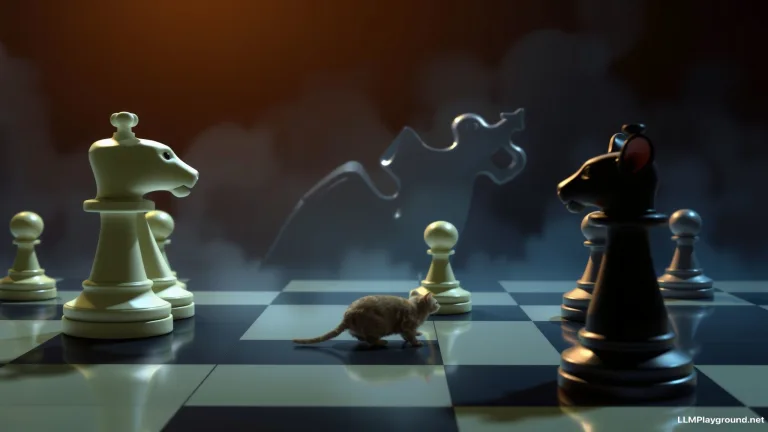
The relationship between Light Yagami and L is a cornerstone of the Death Note series, showcasing a thrilling game of wits that keeps viewers on the edge of their seats. From the moment they are introduced, both characters embody extreme intelligence, presenting a constant challenge to each other. Light, with his god complex and desire to create a utopia, finds in L an equal counterpart. The chess match between them isn't just strategic; it’s deeply psychological. Light’s cunning tactics and moral ambiguity contrast sharply with L’s quirky yet methodical approach to justice. This dynamic creates a compelling narrative that draws in audiences, making them question who they should root for.
As the story unfolds, viewers witness the evolution of their relationship, filled with suspense, manipulation, and ethical dilemmas. While Light aims to outsmart L to achieve his version of justice, L remains vigilant, showcasing incredible deductive skills that heighten the tension. This adversarial bond complicates matters—both characters elicit a mix of admiration and disdain. Fans are often polarized in their opinions, making them debate not just the characters' actions but also their ideologies. Are they heroes or villains? This ambiguity is what makes their relationship so captivating, fueling theories and discussions in the anime community.
The Transformation from Idealism to Tyranny
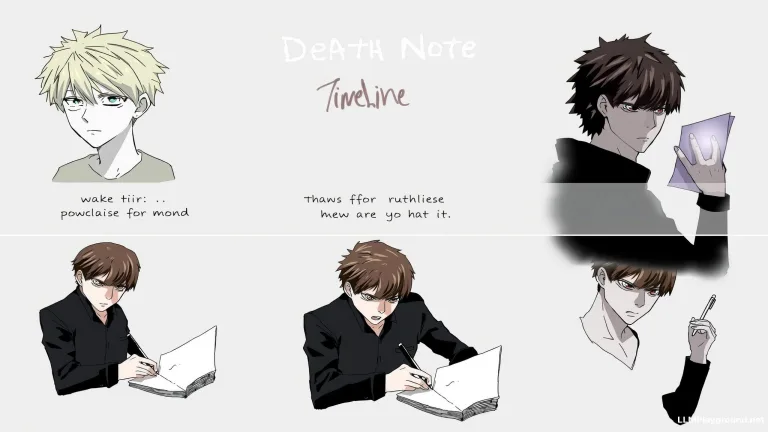
Light Yagami's journey in the anime 'Death Note' is a compelling study of transformation, showcasing a character whose intentions start with an idealistic approach. Initially, he wields the Death Note with the noble intention of ridding the world of evil and creating a utopia. His strong sense of justice draws viewers in, making him a character that many can root for. However, as the series progresses, we witness a dramatic shift in Light’s mindset, transforming from a determined idealist into a tyrannical figure who believes that he has the right to judge and decide who lives or dies. This metamorphosis captivates audiences, creating a complex character that sparks both admiration and revulsion.
What makes Light's transformation particularly intriguing is how it reflects themes of power and moral ambiguity. As he faces opposition from law enforcement and his peers, the pressure to retain control leads him to increasingly drastic and ruthless measures. His descent into tyranny highlights the corrupting influence of power, and through his choices, he becomes an antihero whose motives can no longer be justified. This duality establishes Light Yagami as one of the most polarizing characters in anime, prompting viewers to grapple with the moral implications of his lethal decisions, thus forcing them to question their own beliefs about justice and morality.
Public Perception: Hero or Villain?
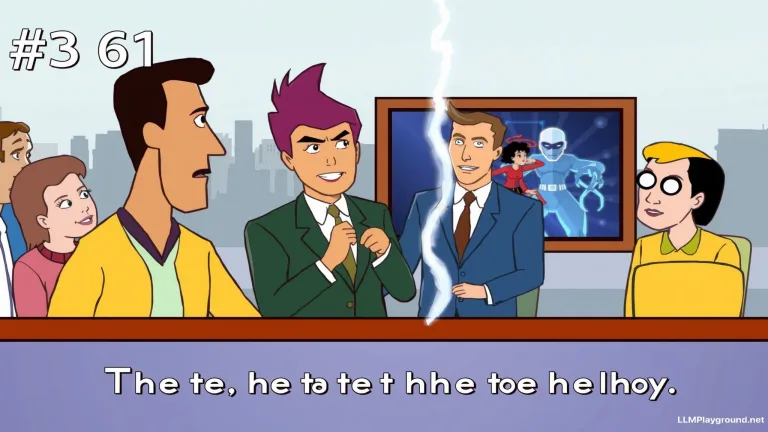
Light Yagami, the central character of the acclaimed anime series 'Death Note', is often at the center of polarizing discussions. Many fans view him as a genius hero intent on creating a utopia free of crime. With his ability to manipulate the Death Note, Light positions himself as a god-like figure who believes he can bring about justice in a corrupt world. This perception appeals to those who admire his intelligence and conviction, making them root for him as he battles against those who oppose his vision, specifically law enforcement and fellow characters like L and Near. The idea of a morally ambiguous protagonist challenges traditional notions of good and evil, engaging viewers in deeper philosophical debates about justice and morality.
However, this admiration comes with a caveat. Light's ruthless methods, which often involve killing innocent people, paint him equally as a villain. Many viewers are repulsed by his growing ego and the cold-blooded decisions he makes to maintain his power. This duality nurtures a complex relationship between the audience and Light. For some, his actions are justified by his ultimate goal. For others, he represents the danger of absolute power and the corruptible nature of humanity. In the end, Light Yagami serves as a fascinating case study of public perception in anime, revealing how the lines between hero and villain can blur when complex motivations and ethical dilemmas are involved.
The Power of the Death Note: A Corruption of Innocence
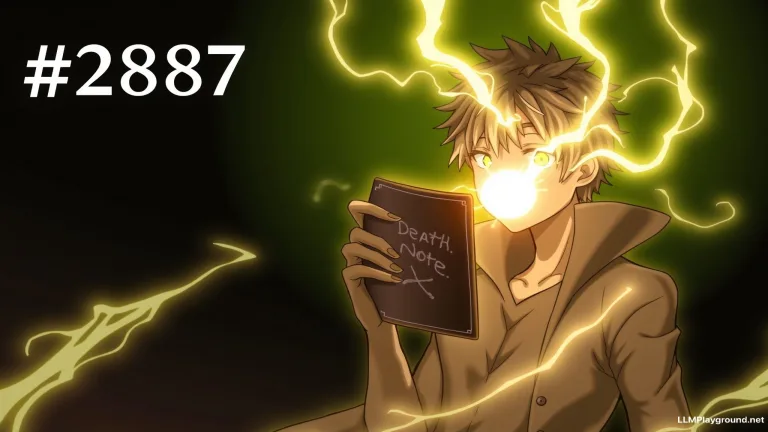
The Death Note serves as the catalyst for Light Yagami's transformation from a brilliant student into a ruthless god complex-driven figure. Initially, Light's intentions seem noble—he seeks to rid the world of criminals and create a utopia. However, the power of the Death Note quickly corrupts his innocence, altering his moral compass. As he begins to use the notebook, his sense of justice becomes increasingly twisted, showcasing how absolute power can lead to absolute moral decay.
The allure of the Death Note lies in its ability to grant its user god-like powers, which Light exploits to eradicate those he deems unworthy of life. This descent into villainy raises important questions about morality and justice within the anime. Fans are left wondering whether Light's actions could ever be justified or if he has simply succumbed to the intoxicating allure of control. His journey illustrates that the very power he sought to wield carries a heavy burden, turning him from a seeker of justice into a perpetrator of tyranny.
Ultimately, Light Yagami's story serves as a cautionary tale about the consequences of unchecked ambition and moral blindness. The Death Note, a seemingly innocuous tool, reveals the fragility of human ethics and the potential for darkness that resides within each of us. As viewers, we are drawn to his complex nature—both repulsed and fascinated—making him one of anime's most polarizing characters.
The Impact of Light's Decisions on His Surroundings
Light Yagami, the central character of the iconic anime 'Death Note', serves as a prime example of a protagonist who blurs the line between hero and villain. His decisions have far-reaching implications, not only influencing his own life but also the lives of those around him. From the moment he acquires the Death Note, Light becomes a self-proclaimed god, determined to eradicate crime and evil from the world. However, this noble intention quickly spirals into a complex web of manipulation, power struggles, and moral dilemmas. The impact of his actions creates a ripple effect, shaking the foundations of society and pushing characters like L and Misa Amane into treacherous paths. In essence, Light's choices transform him from a bright student into a chilling figure whose quest for justice is marred by his growing narcissism and ruthlessness.
Moreover, the psychological effects of Light's decisions extend beyond just societal turmoil. His interactions with other characters showcase how his moral ambiguity impacts friendships and alliances. As Light becomes increasingly consumed by his god complex, he alienates those who once supported him, leading to a profound sense of isolation. This duality in his character—being simultaneously charismatic and unsettling—leaves viewers questioning who they should root for. In a narrative rich with ethical dilemmas, Light Yagami's complex relationships reveal the darker side of his character, making him one of the most polarizing figures in anime history. Therefore, examining the consequences of his choices not only highlights his descent into villainy but also sparks discussions about morality, justice, and humanity in the viewer's mind.
The Complexity of Antiheroes in Anime
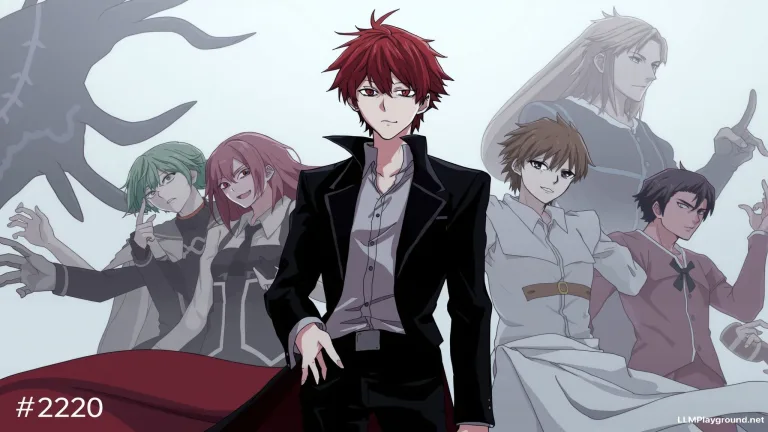
The realm of anime is filled with a myriad of characters, but few elicit as much debate and fascination as the antiheroes. In particular, Light Yagami from "Death Note" stands out as one of the most complex antiheroes in the genre. While many viewers are initially drawn to his profound intelligence and ambitions of a better world, the methods Light employs to achieve his goals force audiences to grapple with their morals. This moral ambiguity is what makes antiheroes like Light so captivating; they challenge traditional notions of good and evil, engaging fans in deeper philosophical discussions.
Light's journey examines the seductive nature of power and the blurred lines between justice and tyranny. As he adopts the role of 'Kira,' delivering what he deems justice through killing, many fans find themselves rooting for him, despite his increasingly ruthless tactics. This nuanced portrayal invites viewers to reflect on their own ethical boundaries. Are ends justified by means? Can someone truly be a hero when their actions result in irreversible consequences? Light's complexity as an antihero initiates reflections on ethics and morality that resonate with many, making animated narratives richer and deeper, thus heightening his polarizing status in the anime community.
The Final Showdown: Light's Ultimate Fate
In the thrilling conclusion of 'Death Note', the final showdown between Light Yagami and his nemesis, Near, offers a compelling climax to the series. This climactic battle not only tests their intellectual prowess but also showcases the moral complexities surrounding Light's character. As the story unfolds, viewers witness the transformation of Light from a determined anti-hero to a desperate villain. The psychological warfare, the intricate plans, and the ultimate betrayal keep the audience on the edge of their seats, forcing them to grapple with the idea of justice and the cost it carries. Light's fate is sealed not just by the outcome of the confrontation but by the choices he made along his journey. Here lies the crux of what makes Light Yagami such a polarizing character; his demise elicits mixed emotions, leaving fans questioning their own views on morality and justice.
Light's ultimate fate serves as a significant turning point in 'Death Note', prompting discussions around redemption, vengeance, and the fine line between heroism and villainy. Despite the tragic ending, many fans still admire Light's brilliance and determination, while others decry his moral decline, showcasing how he embodies the complexities of human nature. Ultimately, his downfall is a testament to the consequences of absolute power. This duality in interpretation weaves a rich tapestry of opinions, making Light Yagami an unforgettable, yet divisive figure in the anime landscape. Understanding Light’s ultimate fate is essential in comprehending what makes him the notorious character that continues to spark debates among fans and critics alike.
Conclusion
Light Yagami’s journey in 'Death Note' serves as an exploration of morality, justice, and the consequences of absolute power. As viewers follow him from a determined student to a tyrannical force, they find themselves grappling with their own perceptions of right and wrong. His character challenges us to look beyond simple labels of 'hero' or 'villain,' opening a dialogue about ethics and the darker sides of human nature. This complex portrayal makes Light one of the most riveting characters in anime history and ensures that debates surrounding his actions will continue well into the future. Whether you love him, hate him, or are simply fascinated by him, there's no denying the lasting mark he has made on the genre. As the anime community continues to grow, so will the discussions about Light Yagami—proof that enigma and depth are key ingredients in creating characters that resonate with audiences long after the show has ended.
Frequently Asked Questions (FAQs)
Q: Why is Light Yagami considered a polarizing character?
A: Light Yagami is polarizing due to his complex moral stance, where he embodies both justice and tyranny, prompting viewers to debate the ethics of his actions.
Q: What are the main themes explored through Light Yagami's character?
A: Key themes include the nature of justice, the abuse of power, and the psychological impact of absolute authority, as seen in Light's transformation throughout the series.
Q: How does Light's intelligence contribute to his polarizing nature?
A: Light's intelligence allows him to execute plans with precision, but this same brilliance also leads to manipulative and morally questionable decisions that provoke mixed reactions.
Q: What impact has Light Yagami had on the anime community?
A: Light's character has sparked countless discussions and analyses, making him a case study in character complexity and ethical dilemmas within storytelling.
Q: Is Light Yagami a villain or a hero?
A: Light embodies both roles; he starts as a hero seeking justice but becomes a villain as his methods and ambitions spiral out of control, prompting varied interpretations.
